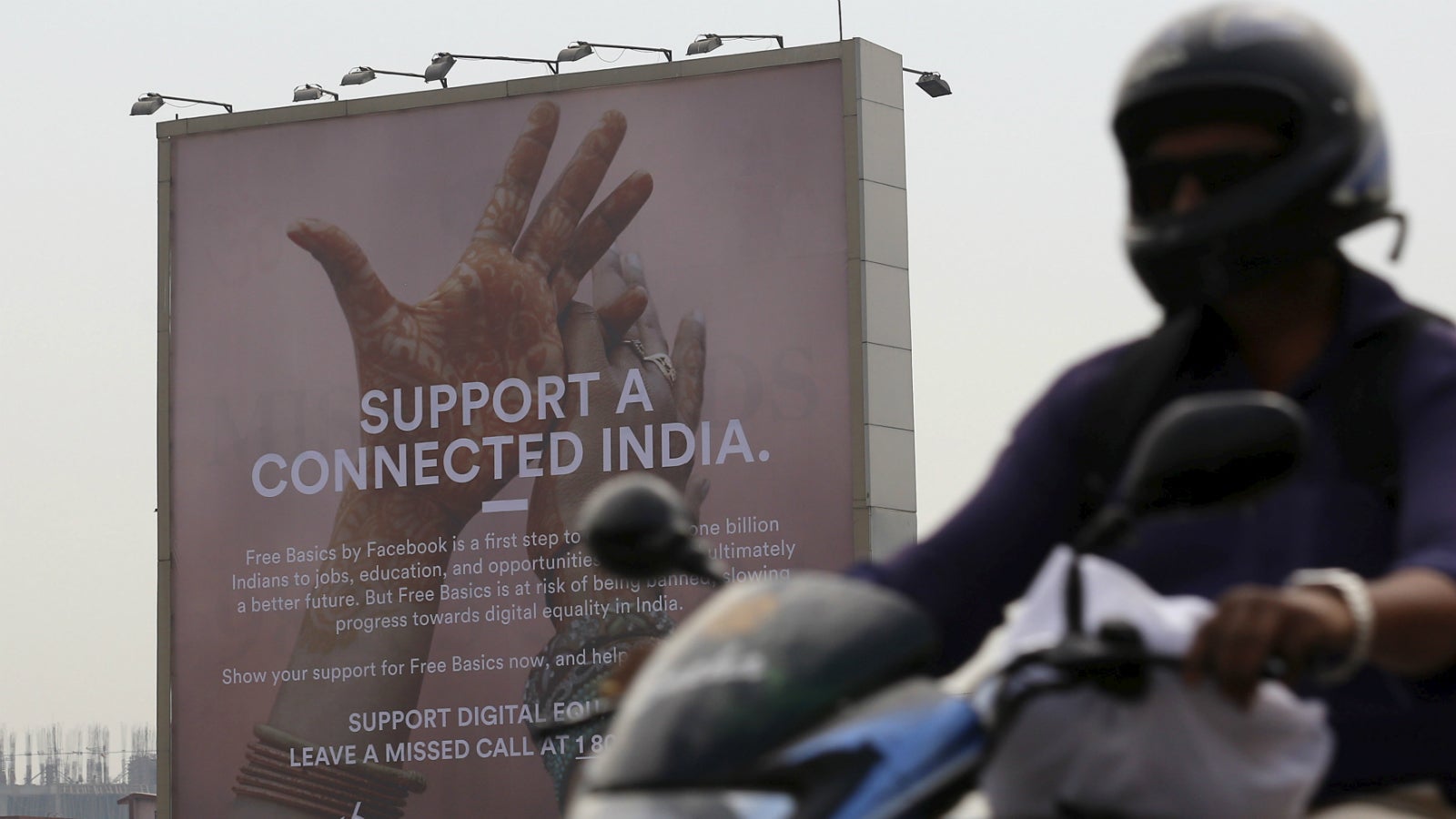What do the British Raj and Facebook Free Basics have in common? A lot, actually
The Telecom Regulatory Authority of India has given Facebook’s Free Basics (a cutely rebranded Internet.org) a big thumbs-down. The opposition from many quarters led to the decision by Indian regulator.


The Telecom Regulatory Authority of India has given Facebook’s Free Basics (a cutely rebranded Internet.org) a big thumbs-down. The opposition from many quarters led to the decision by Indian regulator.
“This can prove to be risky in the medium to long term as the knowledge and outlook of those users would be shaped only by the information made available through those select offerings,” the agency wrote. On Feb. 08, in a report, The New York Times wrote, “Facebook spent millions of dollars on advertising to promote its position and ran special banners in the news feeds of Indian users urging them to petition the government to allow Free Basics.” It is a setback for co-founder and CEO Mark Zuckerberg and the company, which has been working hard to win over India.
Much of the opposition to Facebook’s Internet.org/Free Basics has been framed around the net neutrality debate. But, to me, the problem is rooted in the idea of Data Darwinism, where data owners shape the narrative and make decisions that leave millions without a choice.
My opposition to Internet.org is not recent: Ever since it was announced, I have denounced its duplicitous name. Facebook still calls its efforts Internet.org across most of the world and paints it as a not-for-profit effort. I disagree with two points:
- Internet.org isn’t about the internet, so Facebook should stop calling it as such and call it what it is: Facebook Free (with strings attached). To call it Internet.org is actually the first sin of this whole debacle.
- Facebook Free Basics isn’t a charity. It is a way for Facebook to gather more attention and sell services and advertising to those who get Facebook’s Free Basics.
Maybe I’m suspicious because my family has told me their personal story of the British Raj or maybe because I have read books that over and again detail how a commercial spearhead (The East India Company) came bearing gifts and made way for British imperialism. Regardless, I am suspicious of any for-profit company arguing its good intentions and its free gifts. Nothing—and I do mean nothing—in this life is free. You always pay a price.
It is hard to tell whether money or politics come first, but either way, they are intertwined. During industrialisation, the two key commodities for economic growth were labour and actual commodities. The British Empire became dominant because it mastered mass production and consumption as well as controlling commodities. And it started with The East India Company. The subjugation of the Indian subcontinent was part of industrialisation. In the 20th century, petroleum shaped the political narrative; in this new century, “attention” shapes politics. That is why we have to look at this issue of Internet.org from a cultural standpoint.
In our post-internet age, labour and commodities have been replaced by attention and connectivity. By controlling these, Facebook in many ways has its algorithm decide what is important in the future. I am positive that its role as a gatekeeper of information will cause much deeper problems in the long term.
In a more diabolical scenario, it isn’t hard to imagine Facebook helping sway the outcome of elections. In the US, election-spending and Facebook are a potent mix, as we are made aware every day. In emerging economies, where money has an outsized influence on election results, can Facebook stand up and say no to dollars? Can it say no to money—anyone’s money, for that matter—if its overall growth starts to stall?
Zuckerberg or other senior executives have never discussed with me the responsibility and transparency of their algorithms from a social and cultural standpoint. What are the things he and Facebook won’t do? Will they open up access to everyone, including rivals, to offer services on their platform, and will they offer an equal, bidirectional exchange of data to one and all under the mandates of open source? Can they promise that they won’t use the information for targeting and advertising purposes?
Up until then, from my perspective, Free Basics/Internet.org is all about advertising and making money. Today and tomorrow, Facebook will take decisions based on how it makes or will make money. That is what for-profit corporations do.
This post first appeared on Om.Co. We welcome your comments at [email protected].